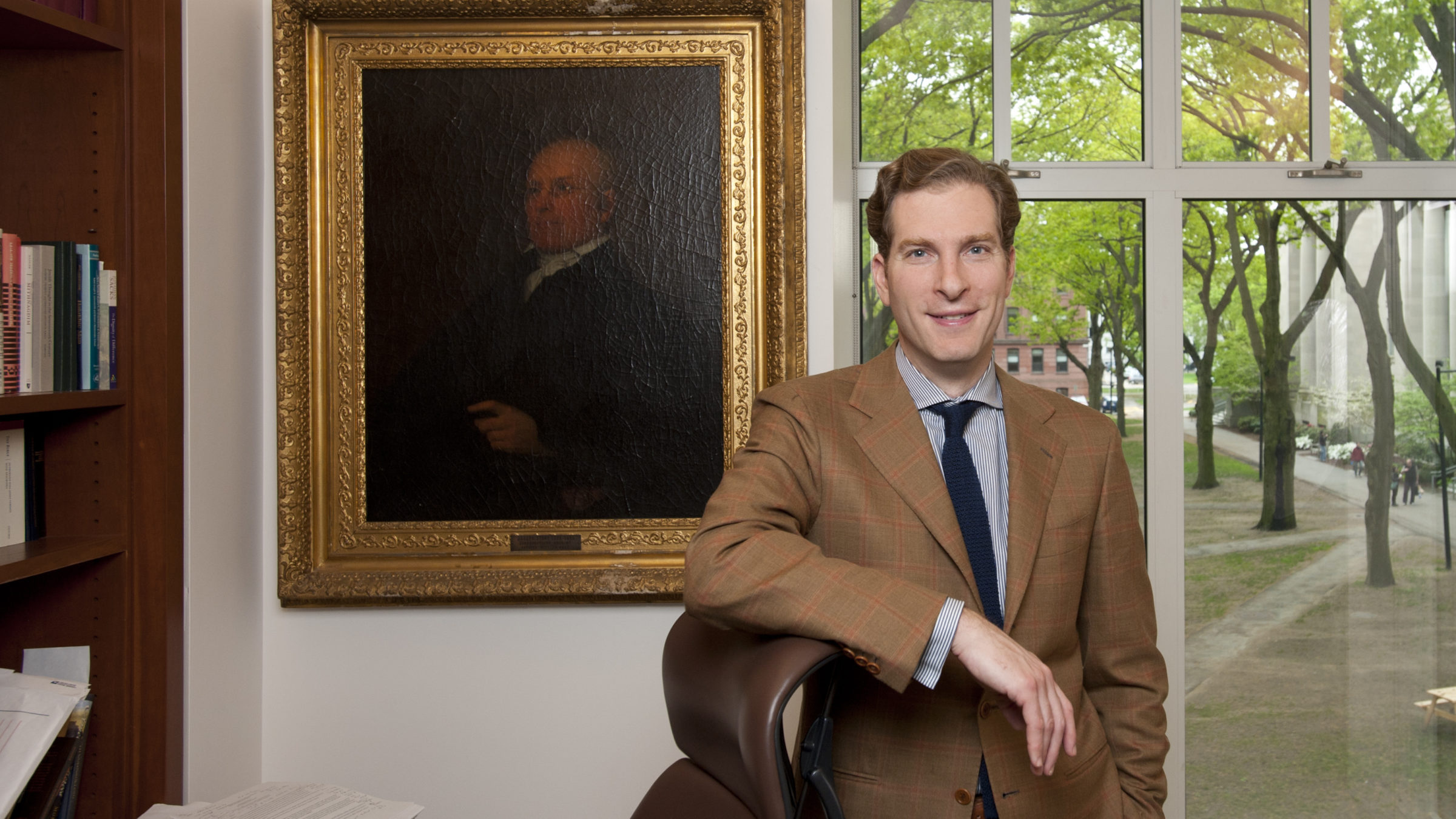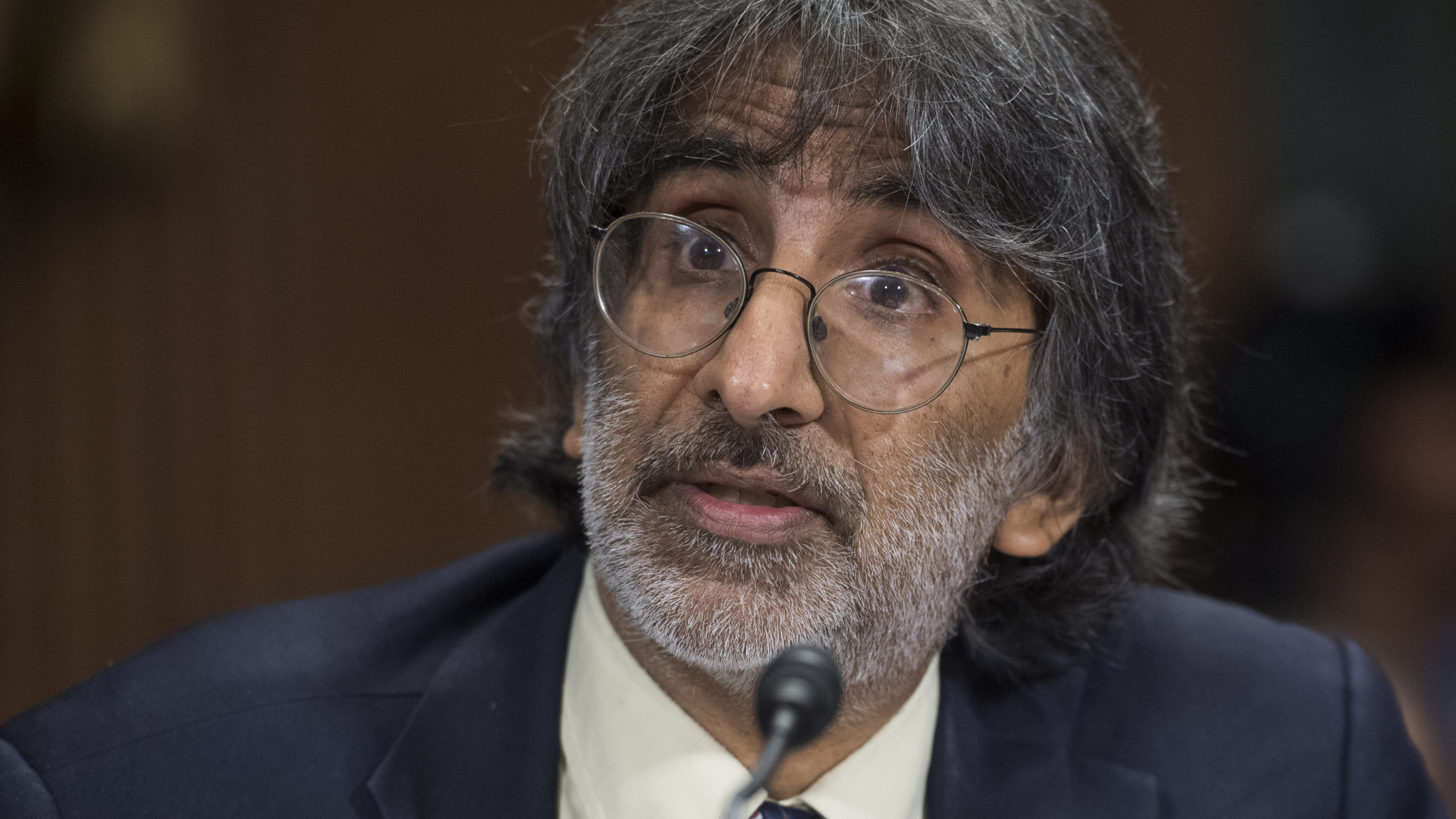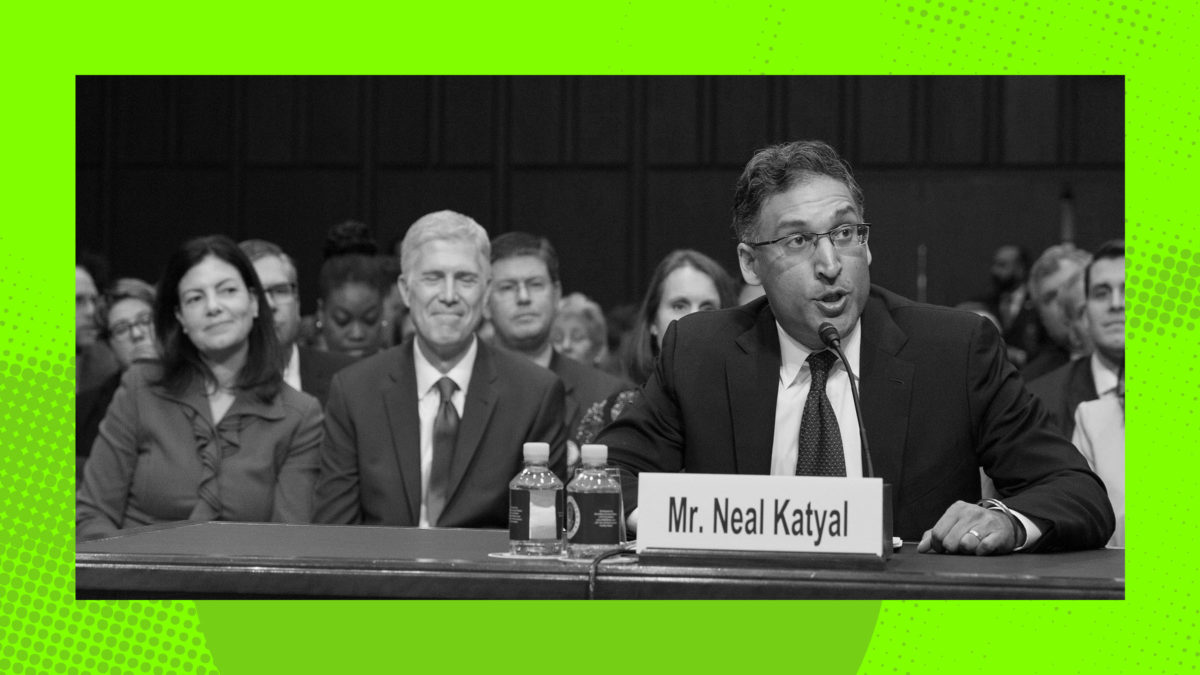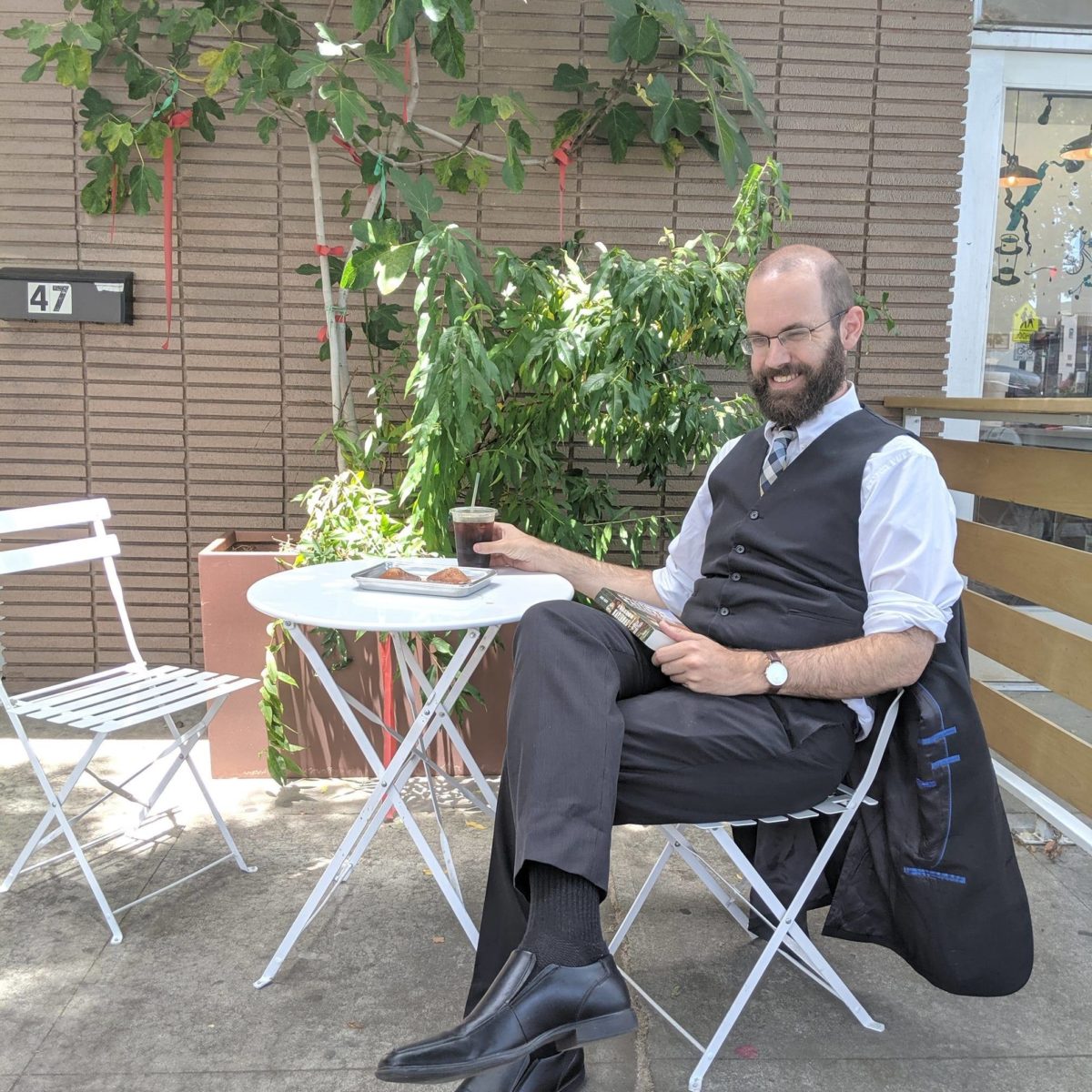The 2021-2022 Supreme Court Term is over and elite liberal legal commentators are in shock. When the Dobbs draft overturning Roe leaked in May, former Obama Acting Solicitor General Neal Katyal said that it pointed to a “dark future” for constitutional law. Yale Law Professor Akhil Reed Amar advised the liberal justices to “start thinking like conservatives” if they hope to win any cases anytime soon. Harvard Law Professor Noah Feldman, meanwhile, is apoplectic — in its decisions this term, he says, the Supreme Court is “eroding the wall between church and state,” and “has taken control of climate policy,” and is “making the streets of New York meaner.” With Dobbs, he concludes, the Court is “committing institutional suicide.”
They shouldn’t be shocked. These pundits vouched for the people who made possible the outcomes they now bemoan. In September 2020, Feldman told us that “Amy Coney Barrett deserves to be on the Supreme Court” in his Bloomberg column. Katyal explained “Why Liberals Should Back Neil Gorsuch” in The New York Times in January 2017 (and made the same argument before the Senate Judiciary Committee during Gorsuch’s confirmation hearings, just for good measure). Also in the Times, Yale Law School Professor Akhil Reed Amar wrote “A Liberal’s Case for Brett Kavanaugh”; appellate litigator Lisa Blatt joined in, providing “a liberal feminist lawyer” perspective on “why Democrats should support Judge Kavanaugh” for Politico.
These endorsements are a perfect illustration of what legal scholar Jon Hanson calls “the cult of collegiality”: the results-agnostic, self-congratulating, meritocracy of elite legal circles. In the view of these “liberal” endorsements, Trump’s nominees deserved a lifetime appointment to one of the most powerful courts on the planet because they were academically accomplished and interpersonally pleasant. Each essay shows a benign indifference to what these nominees would do with power if they got it. As a result, the only thing these endorsements accomplished was legitimizing a conservative constitutional revolution that these liberal legal elites were either too stupid, too deluded, or too cynical to call out.

Noah Feldman in his office at Harvard Law School in 2011 (before the Supreme Court committed institutional suicide) (Photo by Rick Friedman/Corbis via Getty Images)
Each of these pundits were familiar with the nominee’s substantive ideological beliefs: Amar taught Kavanaugh at Yale, and Feldman was a Supreme Court clerk alongside Barrett. Yet each writer breezes right by the consequences of confirming a person with these beliefs to the Supreme Court. Feldman briefly gestures towards Barrett’s worldview, only to dismiss its relevance just as quickly. “Barrett is… a profoundly conservative thinker and a deeply committed Catholic. What of it?” He posed this question rhetorically, but it’s worth answering directly: to the extent it informs her view of the Constitution, these are relevant facts.
Blatt’s essay makes clear to readers that she had no special “insight into his views on Roe v. Wade” but she assured readers that Kavanaugh was “well in the judicial mainstream.” What that mainstream is, and how she could be so confident Kavanaugh is in it, is left unexplored. Amar makes a passing reference to Kavanaugh’s commitment to originalism, but only to note how it contributes to Kavanaugh’s “studiousness.” Unmentioned, of course, is the fact that originalism is a reactionary school of constitutional interpretation committed to rolling back almost every significant liberal accomplishment since the New Deal. A true “liberal’s case” for Kavanaugh might be derailed by such considerations, if only Amar were capable of writing it.
Katyal delves further into cases Gorsuch decided as a federal appeals court judge, noting that he had “ruled against attempts by the government to retroactively interpret the law to disfavor immigrants.” Katyal also highlights Gorsuch’s criticism of “the legal doctrine that federal courts must often defer to the executive branch’s interpretations of federal law, warning that such deference threatens the separation of powers designed by the framers.” The message from Katyal is supposed to be a reassuring one: that Gorsuch could be trusted to constrain then-President Donald Trump’s administrative overreach in the immigration context.
That’s one way to spin Gorsuch’s history. But these cases also illustrate Gorsuch’s general hostility to the administrative state, which was fully on display in a recent end-of-term opinion that limited the Environmental Protection Agency’s ability to issue regulations on carbon emissions. And as a justice, Gorsuch’s defense of immigrants squaring off against the administrative state has been, at best, a sometimes notion. By not placing Gorsuch’s opinions in their ideological context, Katyal gave a misleading characterization of Gorsuch’s merits.

When your former student gets nominated to the Supreme Court before you do (Photo By Tom Williams/CQ Roll Call)
After dispensing with pesky questions about “ideology”, the endorsements turn to matters of what can only be described as “culture fit.” And for these liberal endorsers, “culture fit” means being nice and smart as you take a battering ram to precedent. Feldman calls Barrett a “sincere, lovely person” whom he’s never heard utter an unkind word, “including in the heat of real disagreement about important subjects.” Blatt gushes that Kavanaugh “is a great listener, and one of the warmest, friendliest and kindest individuals I know,”and even recalls him listening to her talk about her challenges as a woman in the legal industry. A true ally if ever there was one.
The endorsements also fawn over the intelligence of nominees. Feldman calls Barrett “a brilliant and conscientious lawyer”; Blatt calls Kavanaugh “brilliant.” Amar lauds Kavanaugh for teaching “at leading law schools” and being “an avid consumer of legal scholarship” who “reads and learns.”
We can all agree that literacy is an essential skill for a Supreme Court justice. But once again, there is no engagement with the actual ideas of these then-nominees. (What were the subjects of those “disagreements” to which Feldman refers? He doesn’t say.) By praising intelligence divorced from its application, the authors are implicitly saying intelligence justifies a blank check for power, regardless of how that power will be used. It’s not a terribly liberal sentiment, so it’s no wonder they don’t say it explicitly.
Since Dobbs, Blatt, Feldman, Amar, and Katyal have all responded differently to the foreseeable consequences of their confirmations of the justices they endorsed. Blatt has been quiet. In her essay in 2018, she stated that “as a mother of a teenage daughter,” she was very concerned about the status of Roe. I wonder what she’s telling her daughter now.
Confronted during a virtual Harvard Law School panel discussing Dobbs, Feldman denied endorsing Barrett because he “said [he] would disagree with her” in his article—one that, again, called her “brilliant” three separate times. Amar, who has long criticized Roe on “liberal Originalist” grounds, seems quite chipper about the “new order… that has dawned”; when discussing the Dobbs leak earlier this year, he made sure to remind everyone that he got cited in the majority.
Katyal has at least actually tried to respond to criticism. After the Supreme Court’s ruling on Texas’ abortion bounty law in late 2021, he wrote a tepid defense of his endorsement of Gorsuch. He described it as a “trade up” from the late Justice Antonin Scalia that didn’t change the conservative-liberal balance on the Court. Perhaps realizing that grading progressivism on a curve set by Antonin Scalia isn’t the strongest argument, he adds a second one: Given Republican control of the Senate, the appointment was going to happen anyway. Why not get behind the least bad outcome?
All the other commentators mention some version of Katyal’s appointment inevitability argument at the time. (Feldman: “When [Barrett] is confirmed, I am going to accept it”; Blatt: “Republicans control both the White House and Senate”.) This is true enough, but it raises the question: If it was going to happen anyway, why was the endorsement necessary? What did all these elite purported liberal commentators think they were accomplishing?
Since they give us little or no reason that can be identified as “liberal” for endorsing the then-nominees, we are left to speculate. Maybe they were trying to prop up the legitimacy of an institution that had been good for them professionally—an institution some of them may aspire to join someday. Maybe they were doing a solid for colleagues they knew personally. Maybe it was a complex interaction of the two. You can call this any number of things: delusional, craven, sycophantic, tragic. But it’s not “liberal” in any sense.
A previous version of this essay misstated Neal Katyal’s former title as Solicitor General; he was, in fact, the Acting Solicitor General. We regret the error as much as we regret making Neal Katyal sound more important than he is.

